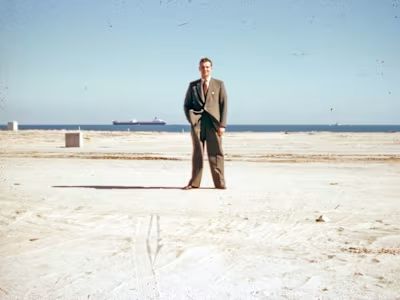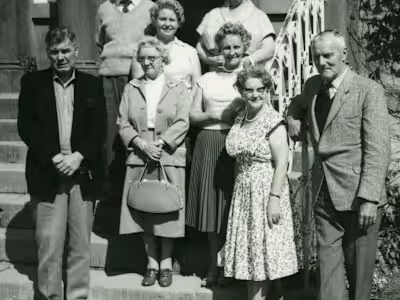The Narrow Road to the Deep North, by Richard Flanagan
The Narrow Road to the Deep North is Richard Flanagan’s sixth novel. It was published in 2013 with a length of 352 pages and it won the 2014 Man Booker Prize.
The novel follows the story of Dorrigo Evans, a famous Australian doctor, native of rural Tasmania, who is haunted by his experiences as a prisoner of war in the Far East during the Second World War and his memories of his love affair with his uncle’s wife, the love of his life. After the war, Dorrigo becomes a war hero and a renowned doctor but has a deep sense of failure and guilt and he embarks on numerous love affairs.
During the Battle of Java, Dorrigo’s regiment was captured by the Japanese and sent to labor on the Siam-Burma Railway, also known as the Death Railway. The conditions under which the prisoners of war lived were terrible and they suffered multiple diseases like beriberi, cholera, and dysentery, as well as malnutrition. The weakened and dying prisoners were expected to build the railway with the little strength they had and were brutally abused by their captors. Dorrigo tried to protect his fellow Australian POWs from the diseases and the violence of the Japanese and although it was a lost battle, he persevered.
The narrative moves back and forth through time and presents the lives of its characters before, during, and after the war. We not only see the subjectivity of the Australian POWs but also of some of the Japanese officers, showing that they too struggled during and after the war to make sense of it all.
Though the novel is plagued with horrific scenes of the hardships of war, they are not gratuitous: this is a story of survival and senseless death. The men who did survive these horrors, the starvation, the humiliation, the impossible task, later had to survive the plaguing memories of this experience.
Flanagan wrote the novel influenced by his father’s experience as a Far East POW. He was part of Dunlop’s Thousand, a group that worked on the construction of the Burma Railway and survived the ordeal. The character of Dorrigo Evans is based on Edward Dunlop, an Australian doctor who, like Dorrigo, cared for the Australian POWs during the construction of the railway.
In a marvelous article about his process of writing the novel, Flanagan said about the title:
“The Narrow Road to the Deep North is one of the most famous books of all Japanese literature. Written in 1689 by Matsuo Basho, arguably the greatest of all haiku poets, it takes the form of what in Japan is called a haibun - a nature journal that records a journey made by the poet in both prose and haiku. Basho's writing, like so much of high Japanese culture, is exquisite and beautiful, and rightly regarded as a high point in the history of world literature. (…) If Basho's The Narrow Road to the Deep North is one of the high points of Japanese culture, the experience of my father and his mates is one of its low points.”
For the Australian POWs, the Line was their narrow road to the deep north—to the deep jungle, to death, to cholera, to starvation. This is a very educational read about a part of World War II that is often overlooked and I highly recommend it. Though challenging, in its pages it keeps alive horrors that humanity should never replicate. It is a story of loss, death, cruelty, and senseless destruction, but at the same time, it is a story about camaraderie, courage, hope where only hopelessness reigned, and survival.
About the author
Richard Flanagan was born in 1961 in Tasmania. He left school at 16, later winning a Rhodes scholarship to Oxford, where he took a Master of Letters degree. He later worked as a laborer and river guide.
He wrote four history books before turning to fiction writing, and has since written several novels, including: Death of a River Guide (1997), the tale of Aljaz Cosini, a river guide, who lies drowning, reliving his life and the lives of his family and forebears; The Sound of One Hand Clapping (1998), which tells the story of Slovenian immigrants; Gould's Book of Fish: A Novel in Twelve Fish (2002), winner of the Commonwealth Writers Prize (Overall Winner, Best Book); The Unknown Terrorist (2006); Wanting (2008), which is set in Tasmania and England in the early nineteenth century and has won several awards, including the 2011 Tasmania Book Prize; and The Narrow Road to the Deep North (2013). This last book tells the story of Dorrigo Evans, a flawed war hero and survivor of the Death Railway in Burma, present-day Myanmar. It won the 2014 Man Booker Prize.
Richard Flanagan wrote and directed the film version of The Sound of One Hand Clapping, which was released in 1998, and world premiered at the 1998 Berlin Film Festival, where it was nominated for Golden Bear for Best film. He also co-wrote the script for the film Australia, which premiered in 2008.
Richard Flanagan has also written many essays and works of non-fiction, a collection of which was published as And What Do You Do, Mr Gable? in 2011.
Like this project
Posted Sep 14, 2023
Novel review of "The Narrow Road to the Deep North" by Richard Flanagan.
Likes
0
Views
3






